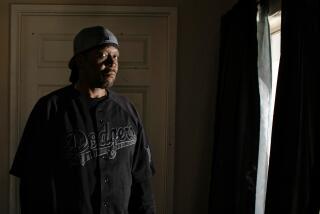When will high-tech CEOs learn to stay off Facebook?
The tendency of high-tech entrepreneurs to swank around as if they own the world, whinging endlessly at the slightest inconvenience and wrinkling their noses at the proles standing in their way as they change the world, is so well-documented at this point, it scarcely needs repeating.
The question no one seems to have an answer for is: Why do they feel the impulse to air their grievances on Facebook?
The latest entrepreneur to let his self-esteem get the better of him is one Greg Gopman, the head of an outfit called AngelHack. Misled by some fairly intensive puffing by the Silicon Valley/San Francisco business media into thinking that anyone cares what he thinks, Gopman unburdened himself of his civic insights in public this week.
A sample from Gopman’s Facebook page, courtesy of Valleywag, whose Sam Biddle has a full-time job keeping track of this behavior:
“Just got back to SF. I’ve traveled around the world and I gotta say there is nothing more grotesque than walking down market st in San Francisco. Why the heart of our city has to be overrun by crazy, homeless, drug dealers, dropouts, and trash I have no clue. ...
“The difference is in other cosmopolitan cities, the lower part of society keep to themselves. They sell small trinkets, beg coyly, stay quiet, and generally stay out of your way. They realize it’s a privilege to be in the civilized part of town and view themselves as guests. ...
“You can preach compassion, equality, and be the biggest lover in the world, but there is an area of town for degenerates and an area of town for the working class. There is nothing positive gained from having them so close to us. It’s a burden and a liability having them so close to us. Believe me, if they added the smallest iota of value I’d consider thinking different, but the crazy toothless lady who kicks everyone that gets too close to her cardboard box hasn’t made anyone’s life better in a while.”
Etc., etc. (Emphasis by Valleywag.)
Gopman’s Facebook rant experienced the usual life cycle of such things. It was promptly taken down (but not before being archived by Valleywag and others). Gopman then posted a public apology on his Facebook page, of a sort that’s beginning to sound like Silicon Valley contractual boilerplate:
“Last night, I made inappropriate comments about San Francisco’s less fortunate citizens between 8th and 4th on Market St. I’m really sorry for my comments. I trivialized the plight of those struggling to get by and I shouldn’t have. I hope this thread can help start an open discussion on what changes we can make to fix these serious problems. Again, I am deeply sorry.”
Gopman’s apology deserves high marks for artistic content: the plea for an “open discussion” on the plight of the downtrodden is a new touch.
Class ugliness in the tech world emerges periodically, as it did during the BART transit strike in October. It’s surprising to see it during the holiday season, but that may just indicate that tech types are feeling their oats just now.
Insensitive and arrogant remarks by gilt-edged executives young or old certainly are not new, nor are the ironies of their making their pronouncements while moistened with a plutocratic sheen. In 1936, General Motors Chairman Alfred P. Sloan returned from three weeks in the south of France to condemn the “shorter hours and pay raises” urged on his company by the government: “Of course I believe in more leisure for workers,” he said at dockside, while the German liner Europa, from which he had just disembarked, loomed behind him. “But we should get it from reduced costs and increased efficiency.... We should earn our leisure.”
One big difference between then and now is that CEOs of Sloan’s era were never expected to apologize, while today the pro forma mea culpa is obligatory. On the other hand, the sincerity quotient of Sloan’s non-apology and Gopman’s orchestrated apology is pretty much equal: zero in each case.
It’s also worth noting, in Sloan’s defense, that his company actually employed thousands of workers at a living wage and manufactured products that contributed tangibly to the economy. Gopman’s AngelHack, not so much. The company seems to be in the business of sponsoring hackathons, which are events at which computer programmers compete to write software code.
“Started in 2011, we’ve organized close to 100 hackathons, parties, and other related start-up events,” the company says. These sound like events destined to be laughed at as hopelessly antique by future generations, like the 1980s geekathon parodied in Andrew Bujalski’s amazing movie “Computer Chess.”
Gopman and his friends -- some of whom resorted to Facebook to second his original complaint -- might as well bask in their status and attention now. They themselves will be the objects of scorn, soon enough.
Reach me at @hiltzikm on Twitter, Facebook, Google+ or by email.
MORE FROM MICHAEL HILTZIK
Obamacare success stories you haven’t read
Katie gives the anti-vaccine movement a megaphone
The California GOP’s anti-Obamacare stunt







